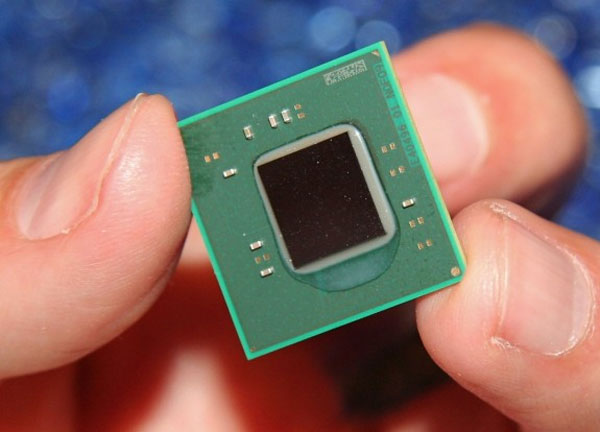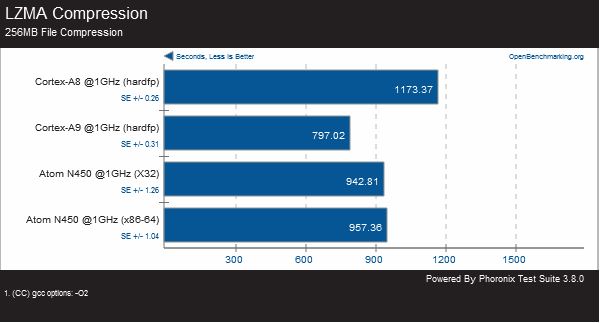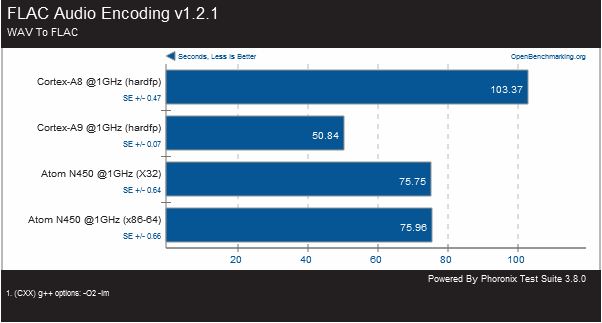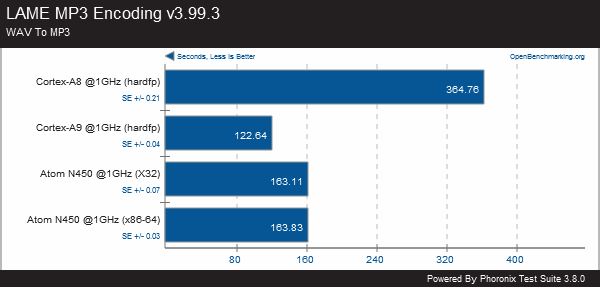Affiliate links on Android Authority may earn us a commission. Learn more.
Cortex A9 beats Intel Atom at the same clock speed
Published onSeptember 4, 2012

An independent user tested a dual core 1.0GHz Cortex A9 chip against a dual core Intel Atom chip running at the same speed. The results may seem surprising as it seems common knowledge that Atom would beat ARM chips in performance clock per clock, but as I’ve said before, Intel is not yet ready to take on the mobile market with its Atom chips.
The screenshots below show how the ARM chip beats Atom in almost every test, while running on Gentoo Linux. Yes, it’s Linux, not Android, but on Linux Atom is supposed to be much more optimized than ARM chips are, considering it’s been around for a few years, and Intel even worked with the Linux Foundation on making the Linux-based Moblin and Meego operating systems for Intel Atom chips. Those optimizations should’ve been pushed to the main Linux kernel by now. And yet, Cortex A9 can still best it.



Granted this is an older version of Atom (N450), and Cortex A9 is almost obsolete as well with the imminent arrival of the next-gen Cortex A15 CPU, but Intel hasn’t changed the performance of Atom that much over the years because the company needed all the improvement it could get in power consumption, to bring Atom from somewhere around 10W TDP to lower than 1W TDP. So Intel focused almost exclusively on lowering the power consumption. Working on increasing performance as well would’ve slowed down improvements in lowering power consumption, and the chip maker couldn’t afford that, as it was, and still is, running out of time.
Intel is still not there yet, and the latest ARM chips like the dual core S4 and quad core Tegra 3 can already surpass it in overall performance in both CPU and GPU in most tests. This is what makes Google’s and Motorola’s decision to adopt Atom for their next flagship device very puzzling, as it seems more of a political move than one based on merit (Intel’s CEO, Paul Otellini, is on Google’s board of directors).
This is much like when it was decided to use Atom in the first Google TV, even though Google TV was based on Android and already highly optimized for ARM, and the same goes for the first Chromebooks. They could’ve used the much cheaper ARM chips, considering the biggest criticism for those 2 devices was the high pricing.
I assume Intel is going to try hard to enter the mobile market with its own x86 based chip, but I doubt it will achieve much success, as I don’t think any of the current or upcoming chips are good enough. The company’s salvation may be the 14nm Airmont, but that’s set for release in late 2014, possibly even 2015 if Intel experience any sort of delay in its Atom line-up. The question is will Intel still have a chance to enter the mobile market that far off into the future, especially when new 64 bit ARM CPU’s are set to arrive at the same time or earlier?